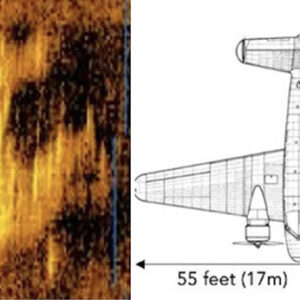
Using a spray-on treatment on asphalt roads could be the answer to both lessening their participation in the continuous warming of cities known as the urban island heat effect, as well as stopping the streets from breaking so quickly.
The treatment, which uses titanium-dioxide, will not only help reflect and disperse intense sunlight and ultraviolet light, it also works at keeping the surfaces of roads and sidewalks cooler too. It also produces a chemical reaction when left unprotected from sunlight while managing to clear away unwanted and unsafe airborne pollutants.
Although the product is still in development, having just these two qualities is already being marketed as a “road rejuvenator” while allowing asphalt to keep its flexibility while stopping it from cracking over time.
The company, Pavement Technology, began using their titanium dioxide spray alongside the Texas A&M University. The company is sending the university their air quality samples, which were also taken alongside their spray treated asphalt road core samples as well.
Their first results have shown much promise, while the company shares that the one mile-stretch of road that was treated with their “road rejuvenator” already showed reduced levels of nitrogen oxide (NOx) by at least 30% to 40% in air, which happens to be equivalent to a 20-acre sized park.
Commonly found in regular sunscreen, titanium dioxide is just as effective at reflecting sunlight. As for black tarmac and concrete buildings, they are usually packed so tightly together that it makes an incredibly notable urban island heat effect, which is when the sun heats up these surfaces during the day, but turns radiates that heat outward to their surroundings. Because of this, most cities cannot cool down in the evening.
So for many cities, depending on their density, size and climate within the city, this tends to raise their average daily temperatures by a large percent. For example, Adelaide sometimes sees as much as 4°F, while Singapore can reach a whopping 14°F. Aside from adding green spaces and green rooftops to help counter these heating issues by effectively dispersing heat, these treated streets could have a large impact on lessening or completely canceling the urban island heat effect, especially when used together.
Moreover, the spray could eventually replace maltenes in the road, which are compound found in the black oily bitumen component of asphalt that’s used to keep the roads from breaking for longer periods of time.
Not only will this help lessen the emissions required for road repairs, as well as the commonly used heavy machinery needed, it also means lessening or slowing down the usually traffic emissions that come from roadwork. This is already a major plus for commuters that happen to live in any of these rather large, busy, and hot metropolitan areas. Hopefully it’s one positive change that will find itself being utilized all throughout the world.
What are your thoughts? Please comment below and share this news!
True Activist / Report a typo


